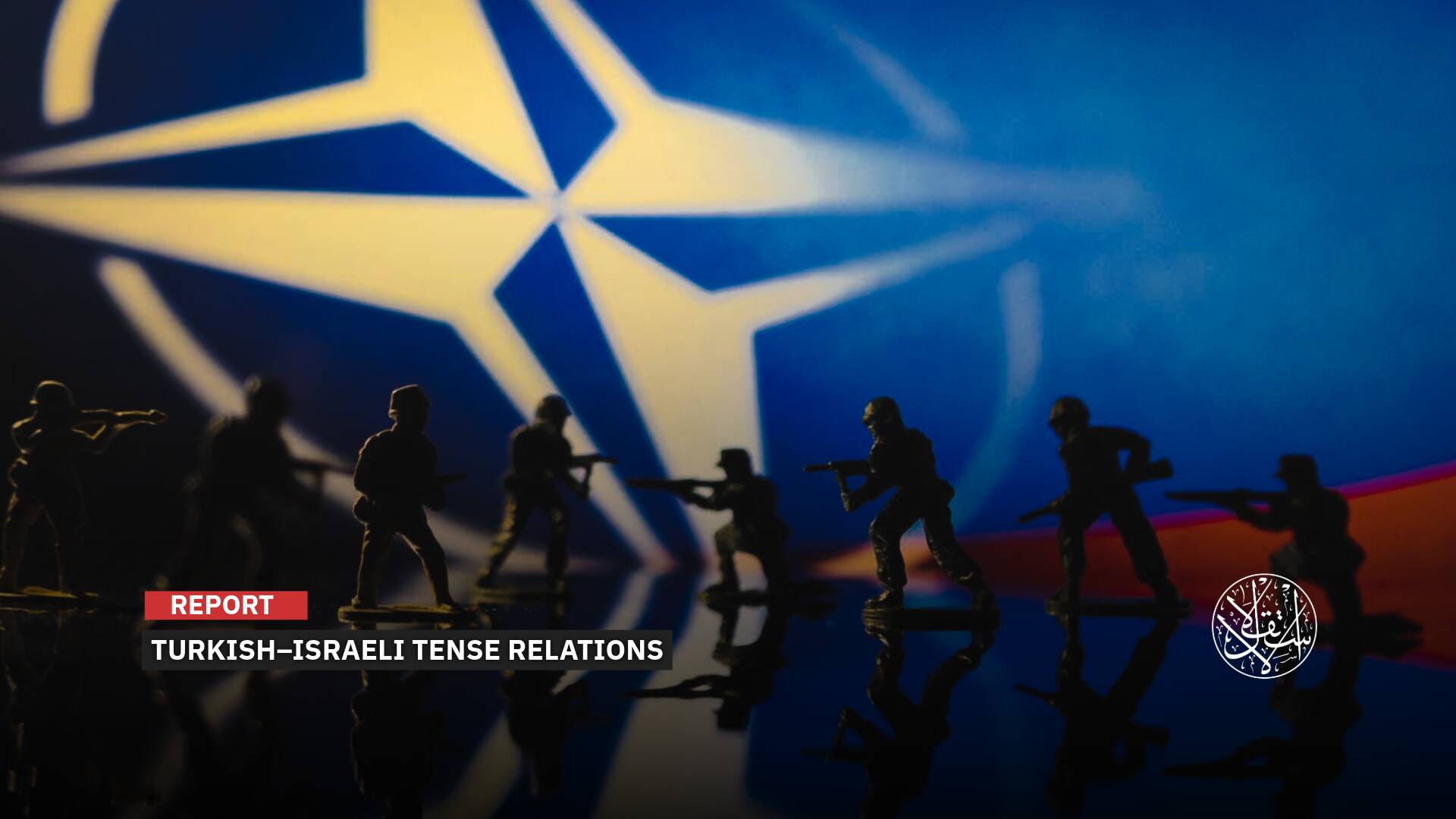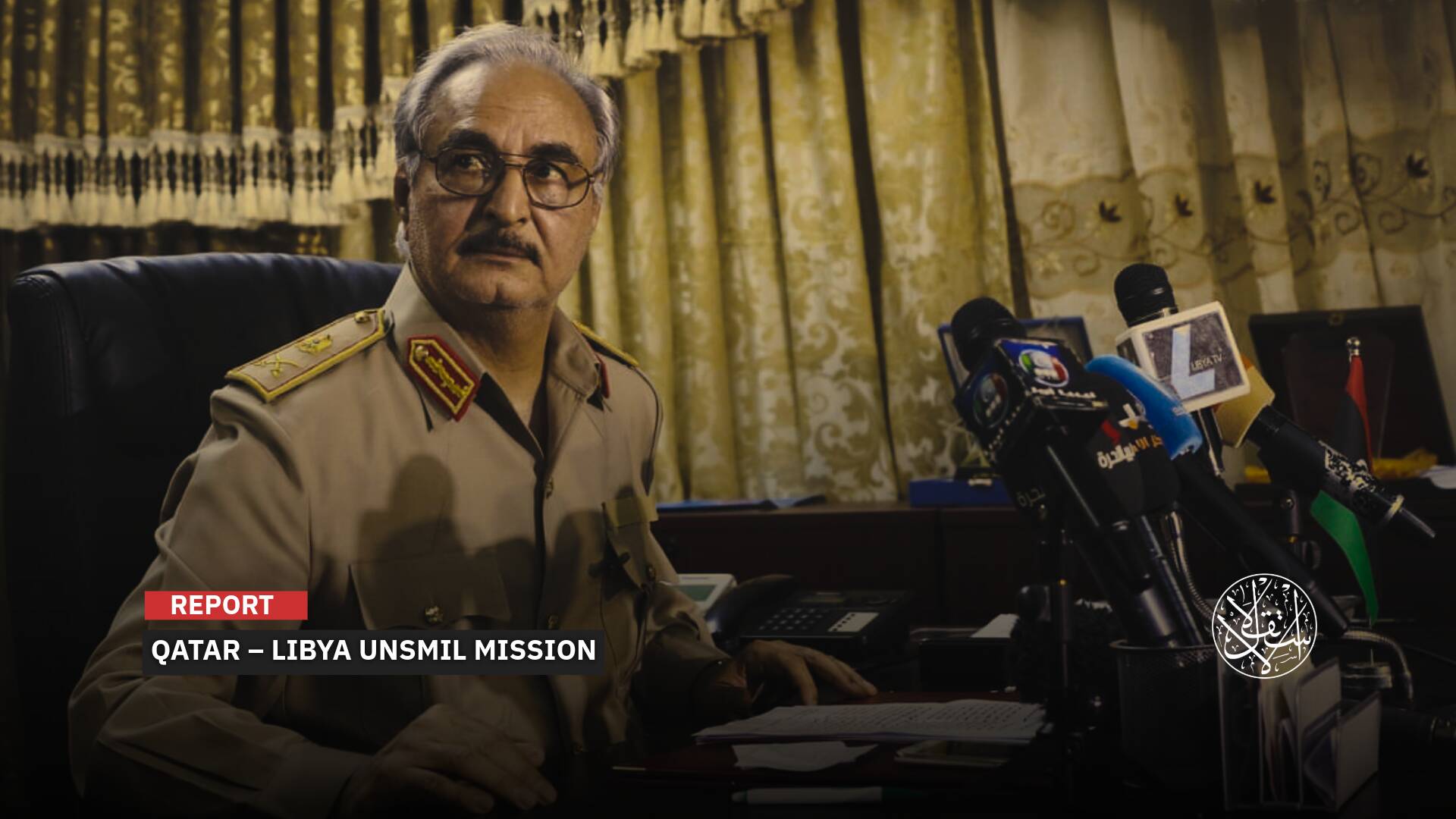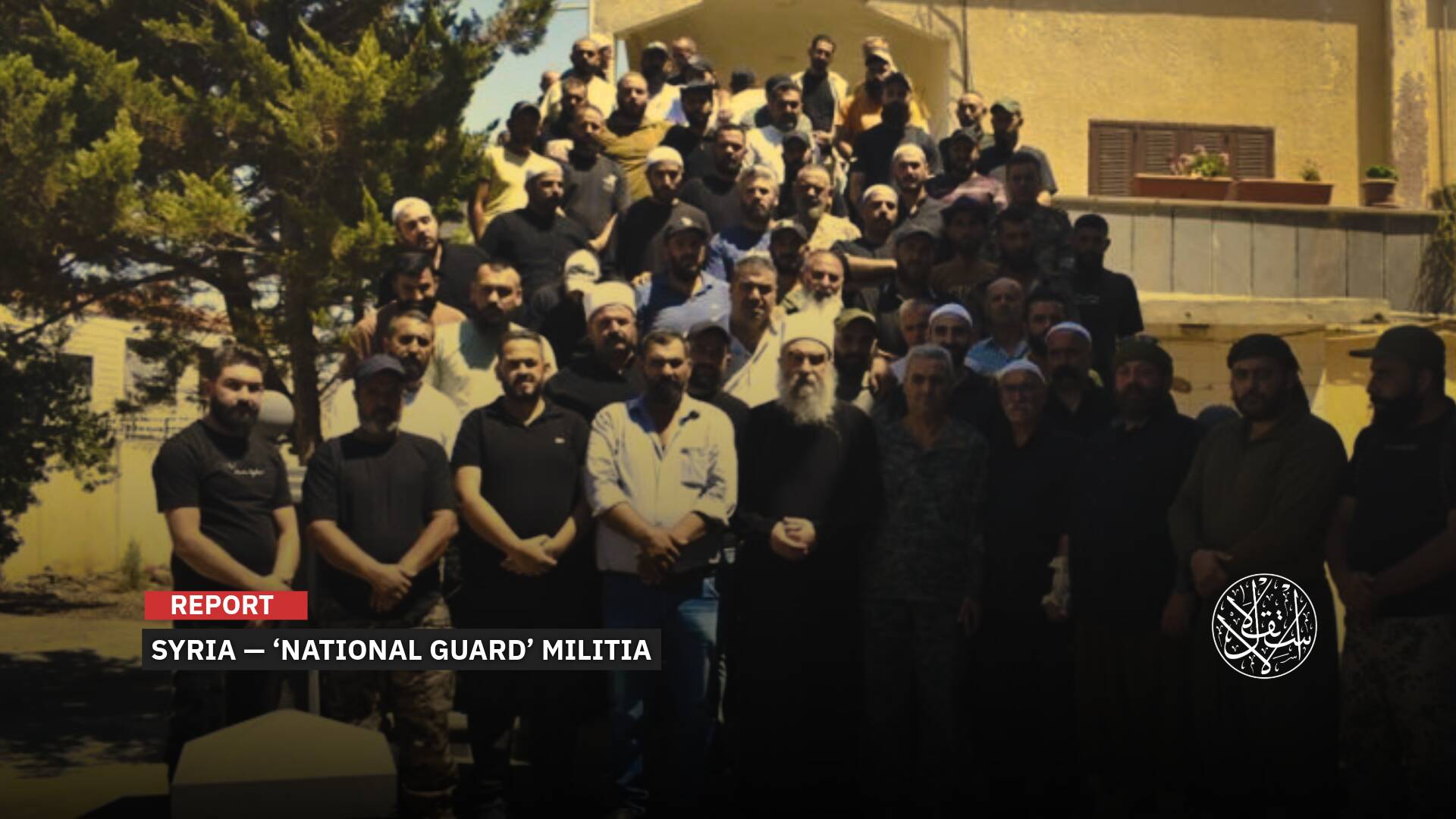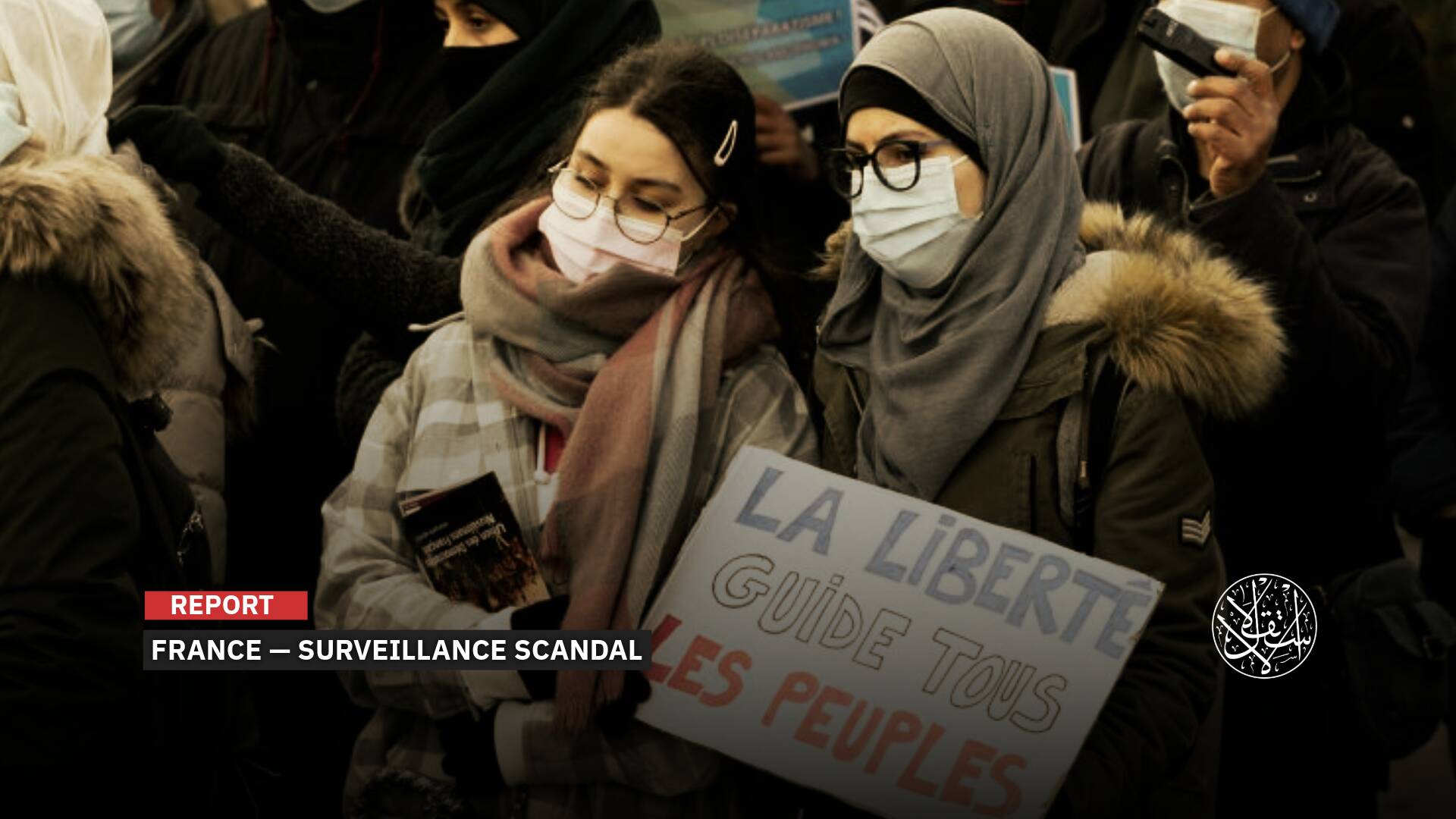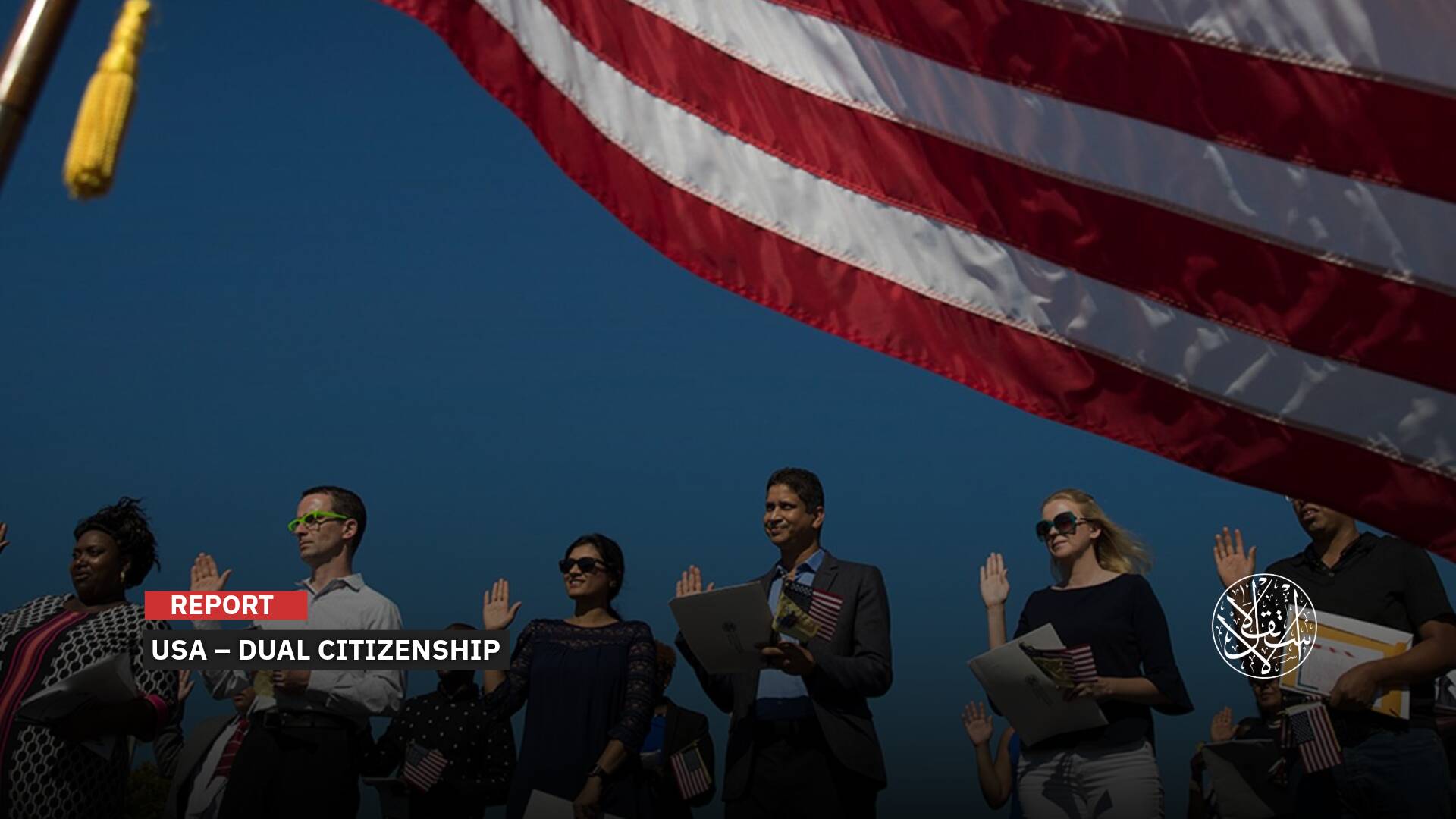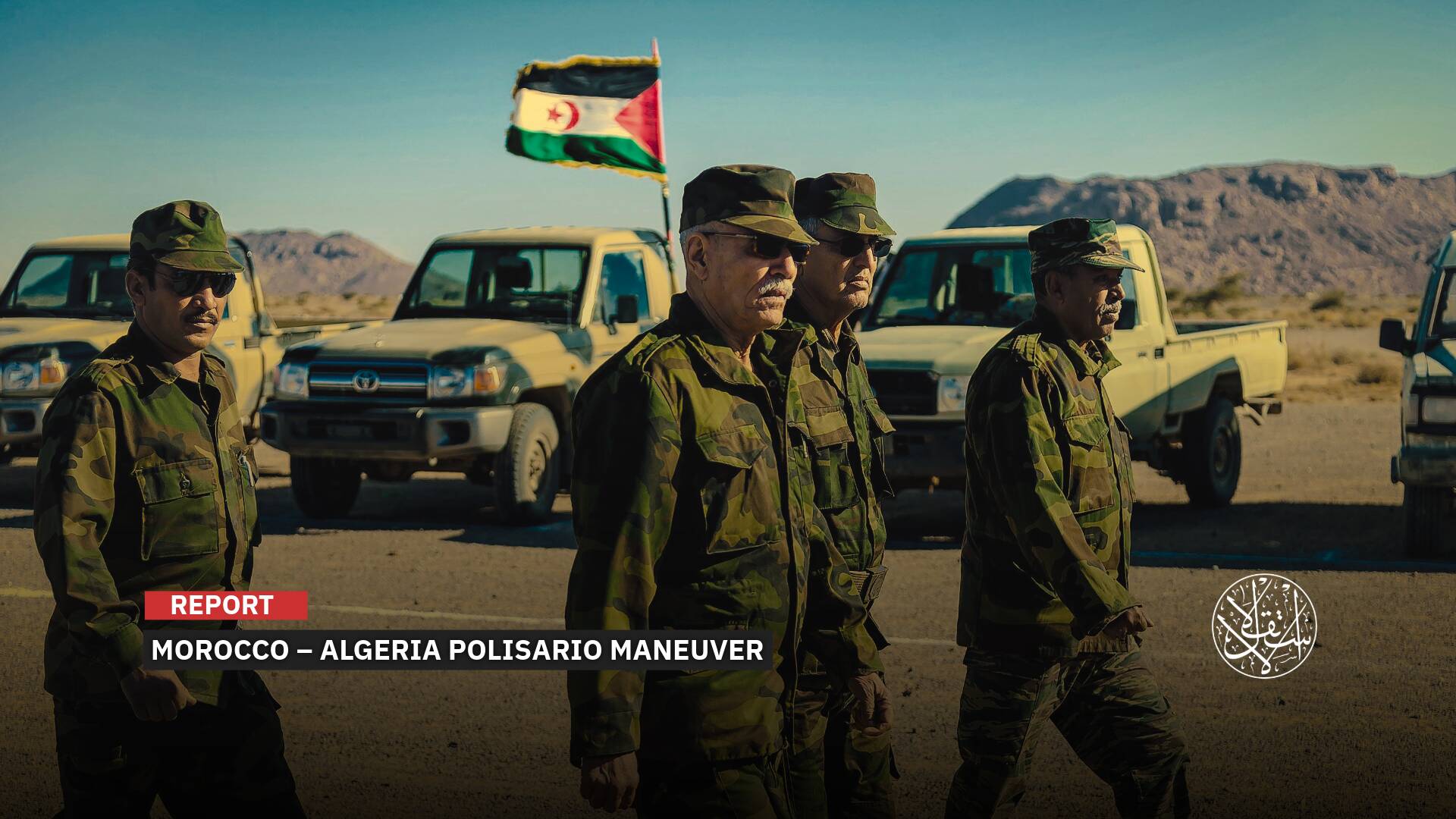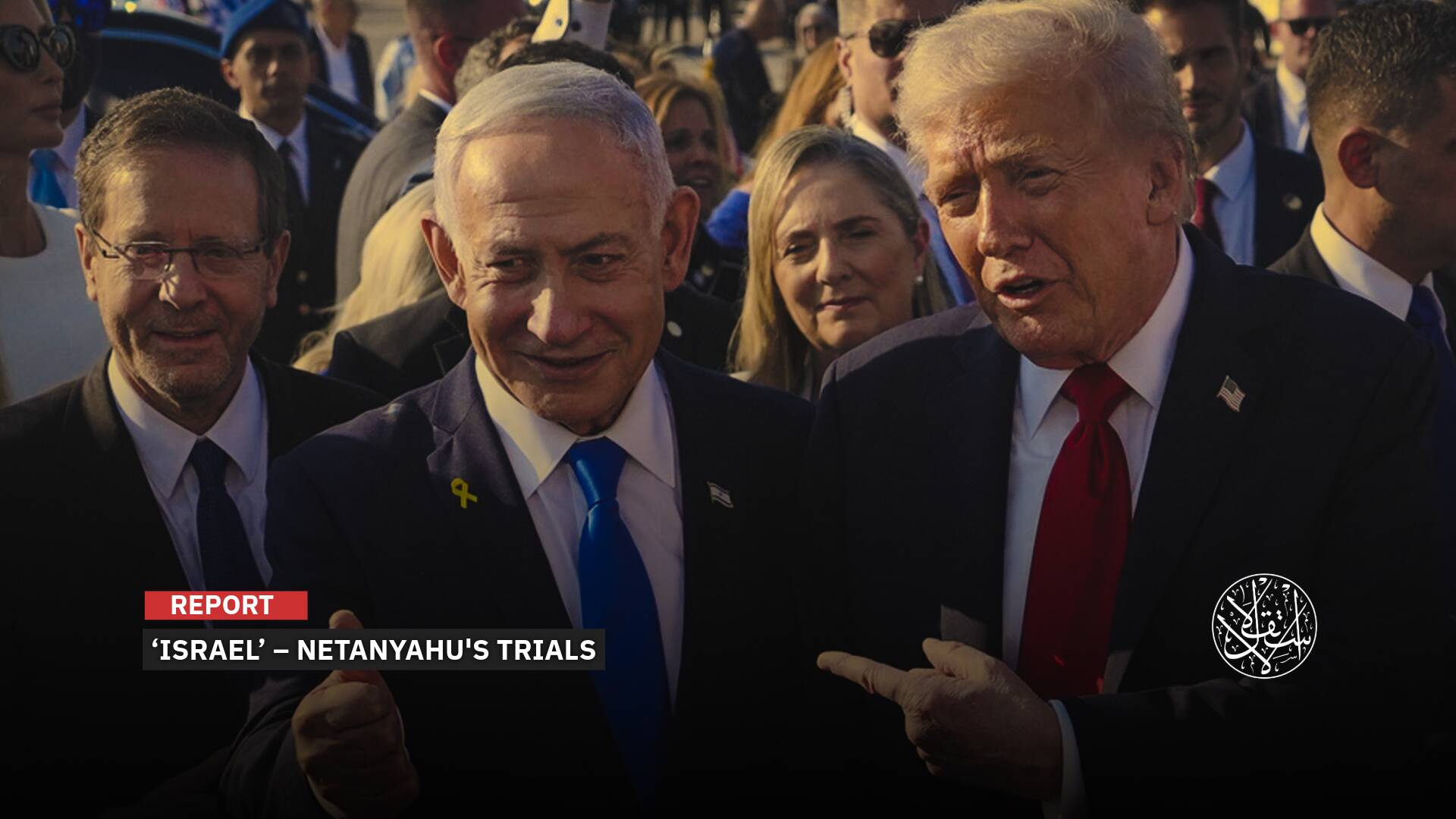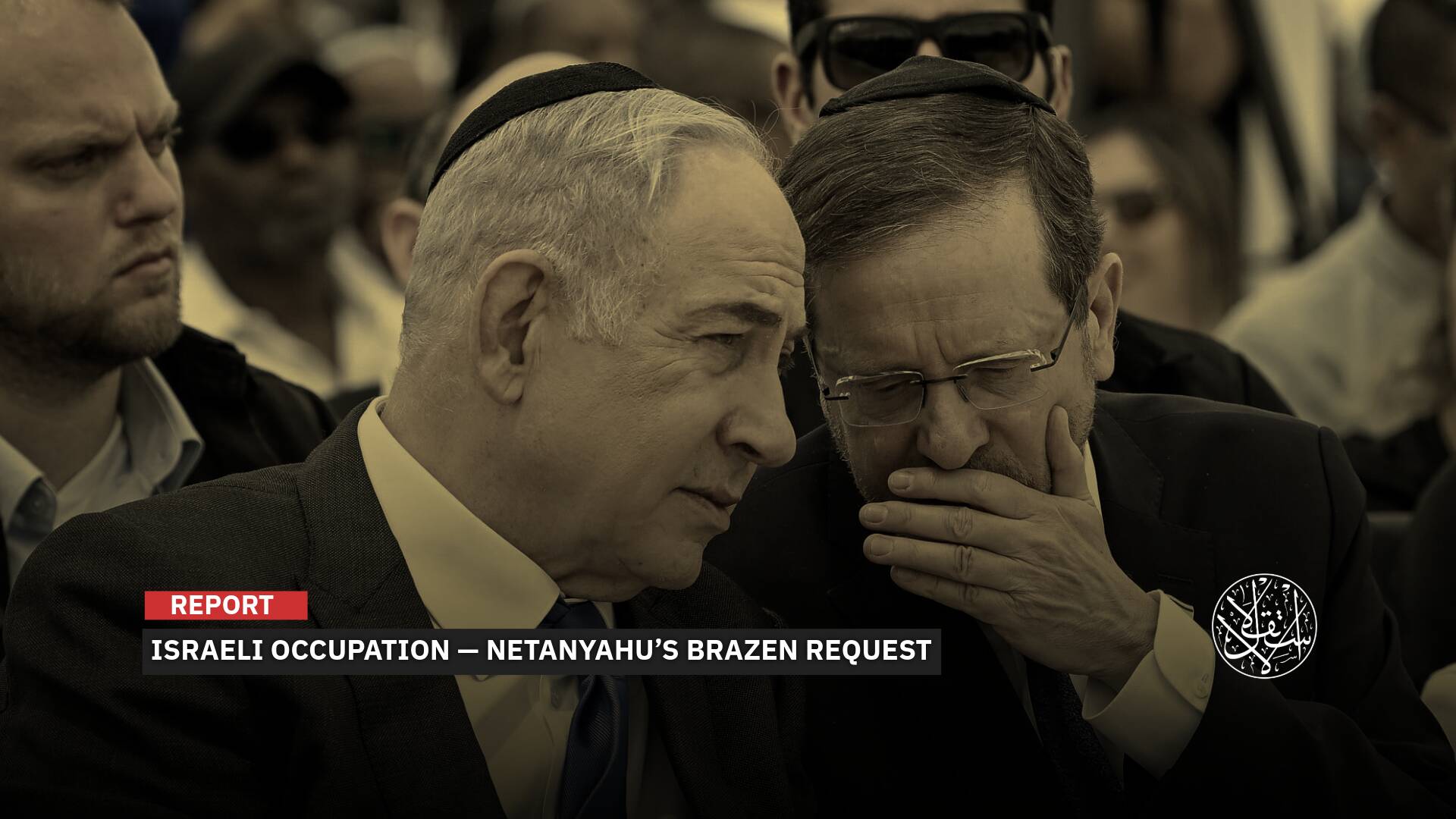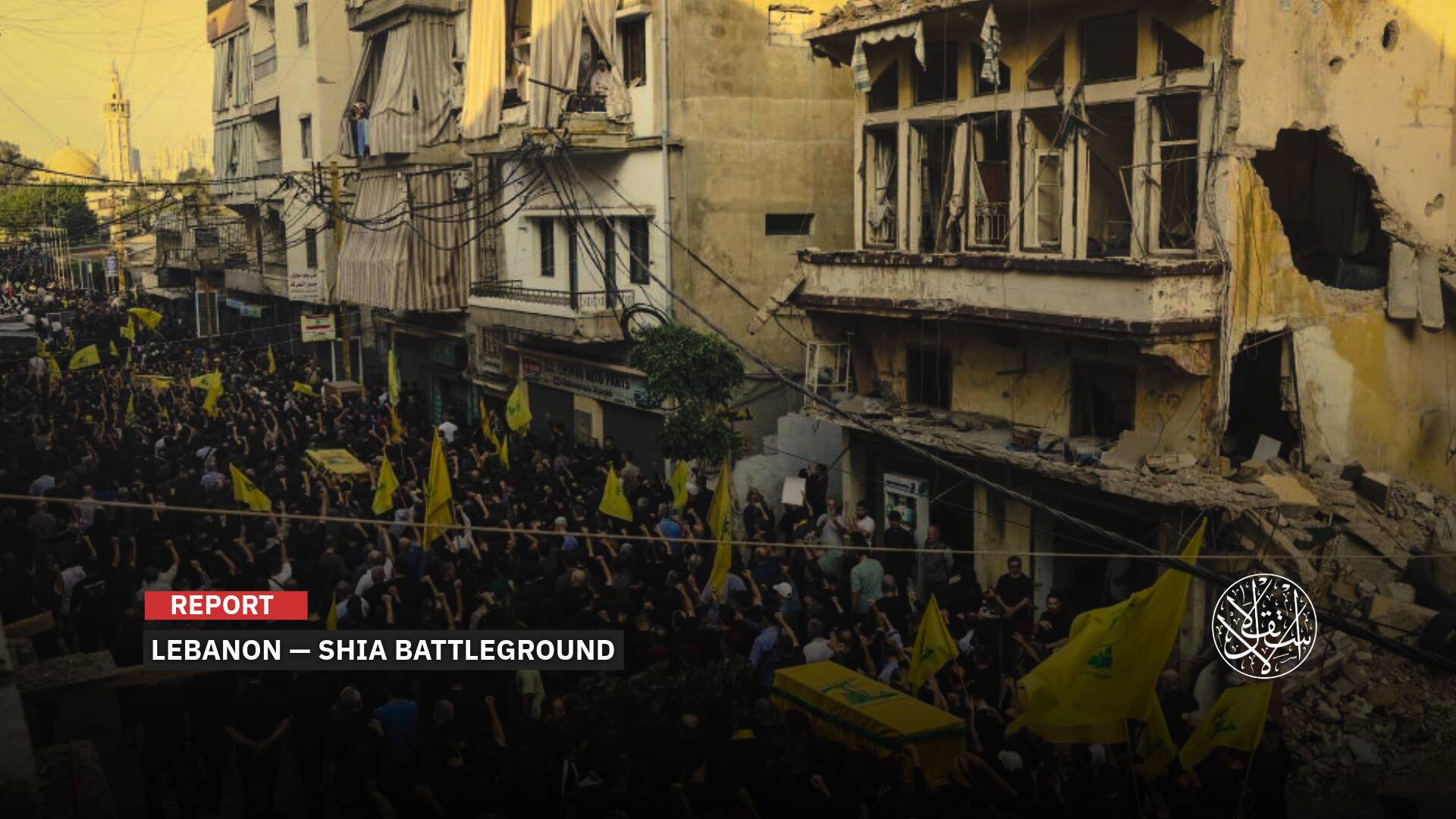Stalled File: What’s Behind Jordan Hosting U.S.-Mediated Talks Between the SDF and Damascus?
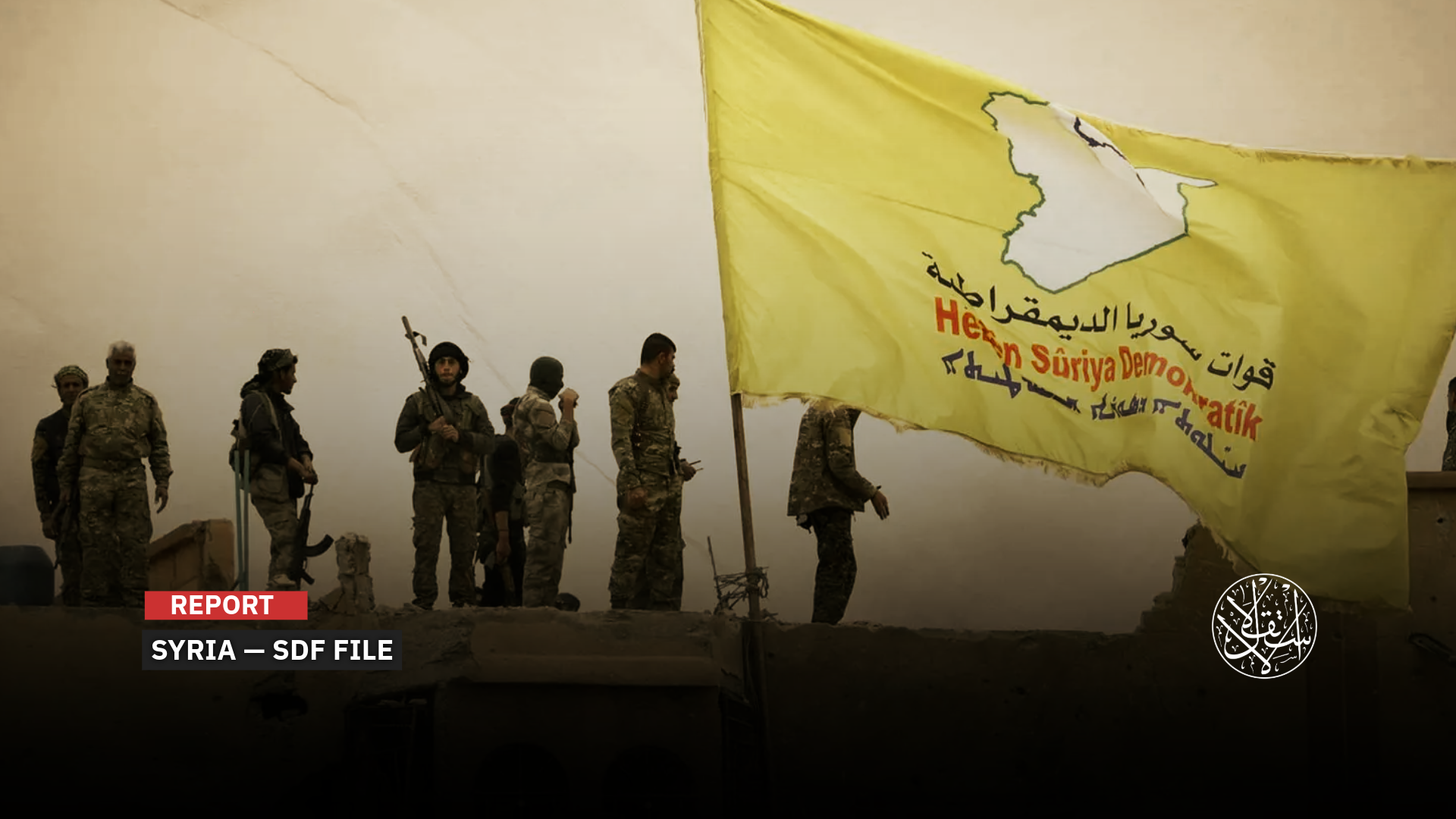
“The events in Sweida directly affected the areas of northeast Syria.”
Jordan is stepping up its diplomatic moves to support the new Syria in navigating the transitional phase and rebuilding the neighboring country, worn down by years of war.
In recent weeks, Jordan has seen a setback in efforts to advance stability in Syria after separatist tendencies emerged in Sweida, a Druze-majority province, led by Druze spiritual leader Hikmat al-Hijri, who openly called on Israel for support.
Since Sweida borders Jordan, Amman rejected any attempts at separation or partition in Syria.
Amman also turned down al-Hijri’s request on July 17, 2025, to open corridors from Sweida into Jordanian territory or toward areas under the control of the Syrian Democratic Forces in the country’s northeast.
Since the outbreak of unrest in Sweida, Jordan has been present and supportive of any effort to end the escalation. In coordination with the United States and Turkiye, it became a broker of a ceasefire agreement, still fragile, between Sweida’s social forces and the new Syrian state.
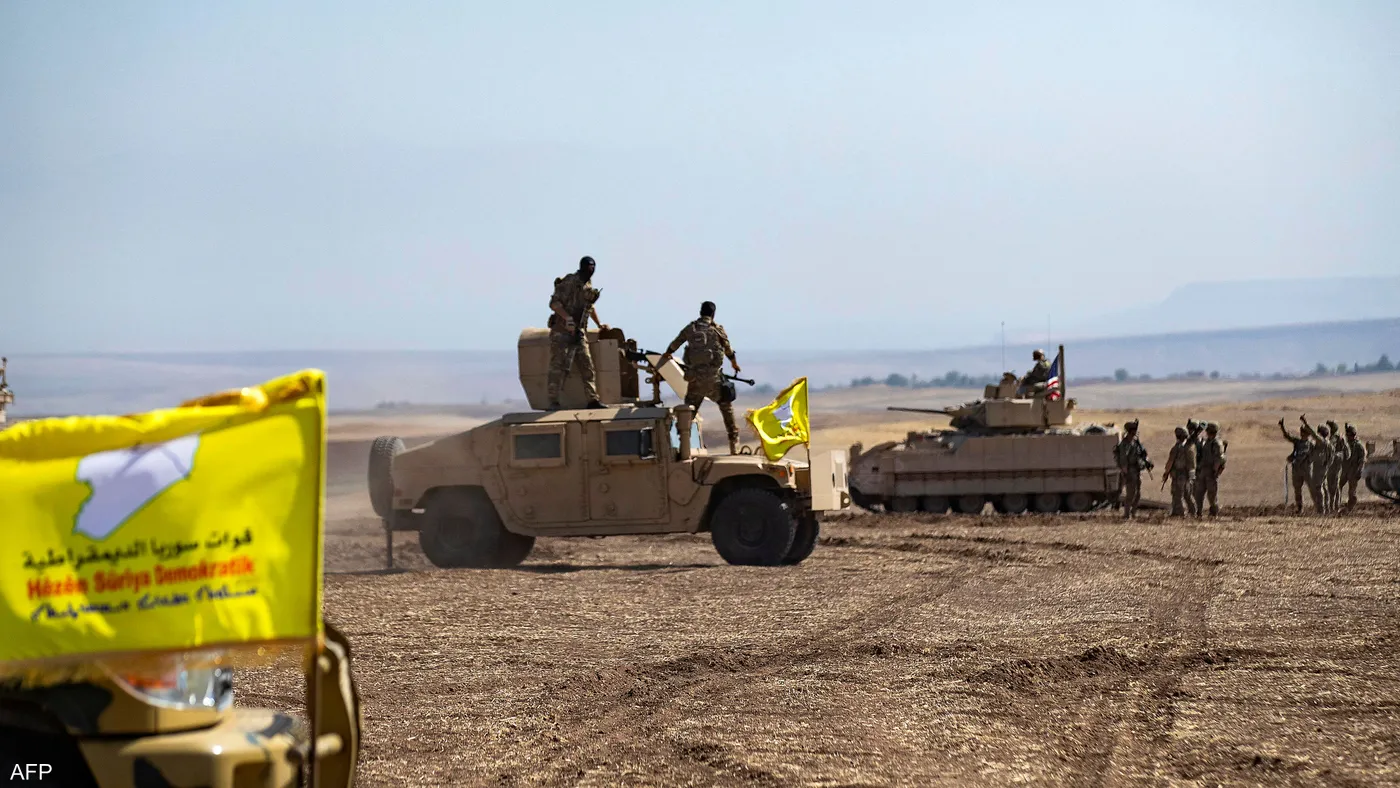
SDF Is Negotiating
What stood out was Jordan’s hosting of high-level U.S. talks with the Syrian Democratic Forces (SDF).
Media outlets close to the SDF reported on August 26, 2025, that a meeting took place in Amman between U.S. officials and the SDF’s commander in chief, Mazloum Abdi, to discuss ways to advance the implementation of the March 10, 2025, agreement between the SDF and Damascus.
According to those reports, the meeting was attended by U.S. Senator Jeanne Shaheen, Congressman Joe Wilson, U.S. envoy to Syria Thomas Barrack, and Ilham Ehmed, co-chair of the Foreign Relations Body of the Autonomous Administration of North and East Syria.
The participants discussed practical steps to move forward with the implementation of the March 10 agreement. Senator Shaheen reaffirmed Washington’s continued support for the SDF and stressed the United States’ commitment to partnership with it in fighting terrorism, according to the media.
In Damascus, Syrian transitional president Ahmed al-Sharaa and Mazloum Abdi signed the agreement, which provides for the integration of all civilian and military institutions of the Kurdish Autonomous Administration into the Syrian state, including border crossings, the airport, and oil and gas fields.
The agreement consists of eight points, with joint committees tasked to complete its implementation by the end of 2025.
Subsequent rounds of negotiations between Damascus and the SDF were held in areas under their control to advance the agreement.
Senior SDF officials, however, repeatedly stressed in public statements that they could not compromise on the demand for political pluralism through decentralized governance in Syria.
Media close to the SDF, including the ANHA agency, reported on August 28, 2025, that the meeting in Amman with Senator Shaheen, Congressman Wilson, Mazloum Abdi, and Ilham Ehmed also addressed the issue of integration with Damascus under a decentralized framework.
Jordan was among the first countries to welcome the integration agreement.
On March 11, 2025, the Foreign Ministry described it as an important step toward rebuilding Syria on foundations that safeguard its unity, sovereignty, and stability, while ensuring its security, freeing it from terrorism, and preserving the rights of all Syrians.
Ministry spokesman Sufyan Qudah affirmed Jordan’s support for Syria and its readiness to provide all possible assistance to help the Syrian people overcome the transitional period. He said Amman hoped this phase would mark a historic starting point to rebuild a free, stable, and sovereign Syria.
He explained that this would take place through a Syrian process involving all segments of society, safeguarding their rights, and protecting them from chaos, strife, and conflict.
‘Regional Broker’
Syrian observers note that Damascus rejects political decentralization or federalism, while accepting only administrative decentralization that grants local populations the right to manage their affairs and achieve sustainable development.
Jordan has made no secret of both its calls for and its welcome of the accelerated integration of the SDF into the new Syrian state.
Syrian researcher Ammar Jallou said Jordan has become an active diplomatic player in shaping the political transition in Syria after Turkiye’s influence waned and after the United States and regional states, especially in the Gulf, assumed stewardship of the process.
“Israel’s entry into the Syrian file following Assad’s fall contributed to the decline of Turkish influence, which pushed Washington into balancing between two allies, Turkiye on one side and Israel on the other, especially given Ankara and Tel Aviv’s conflicting positions on Syria,” he told Al-Estiklal.
“Turkiye seeks a single unified and centralized Syria, while Israel is not interested in that and instead favors a weakened and fragmented Syria. But U.S. pressure has pushed Israel to accept a single Syrian state under a decentralized framework.”
“The events in Sweida directly affected the areas of northeast Syria where the SDF holds sway and strengthened the Autonomous Administration’s position in demanding decentralized governance,” Jallou added.
These indicators, the researcher argued, demonstrate that Jordan has become a regional broker and an influential partner in shaping Syria’s transition, given the importance of Syrian stability for Jordan and its broader implications.
According to Jallou, the new developments in Syria have positioned Amman as a more acceptable player than the Israeli Occupation. Jordan, he added, may even serve as an alternative to Paris, which had been set to host talks between the SDF and the Syrian government in August 2025 before they were postponed.
On August 18, 2025, Qutaiba Idlibi, head of U.S. affairs at the Syrian Foreign Ministry, announced the cancellation of the Paris meetings, which were scheduled to bring together delegations from the Syrian government and the SDF.
Idlibi confirmed that negotiations between the two sides remain ongoing. He told Rudaw TV that Damascus rejects a repeat of the “state within a state” model seen in countries such as Lebanon.
He stressed that stability in Syria can only be achieved through a unified government and a single national army that includes all groups under the framework of the state.
Explaining Damascus’s decision to skip the Paris meetings after the al-Hasakah conference, Idlibi said the gathering was structured incorrectly. It had given a platform to figures linked to the Assad regime and presented the process in sectarian, religious, or ethnic terms, which Damascus considered a misstep.
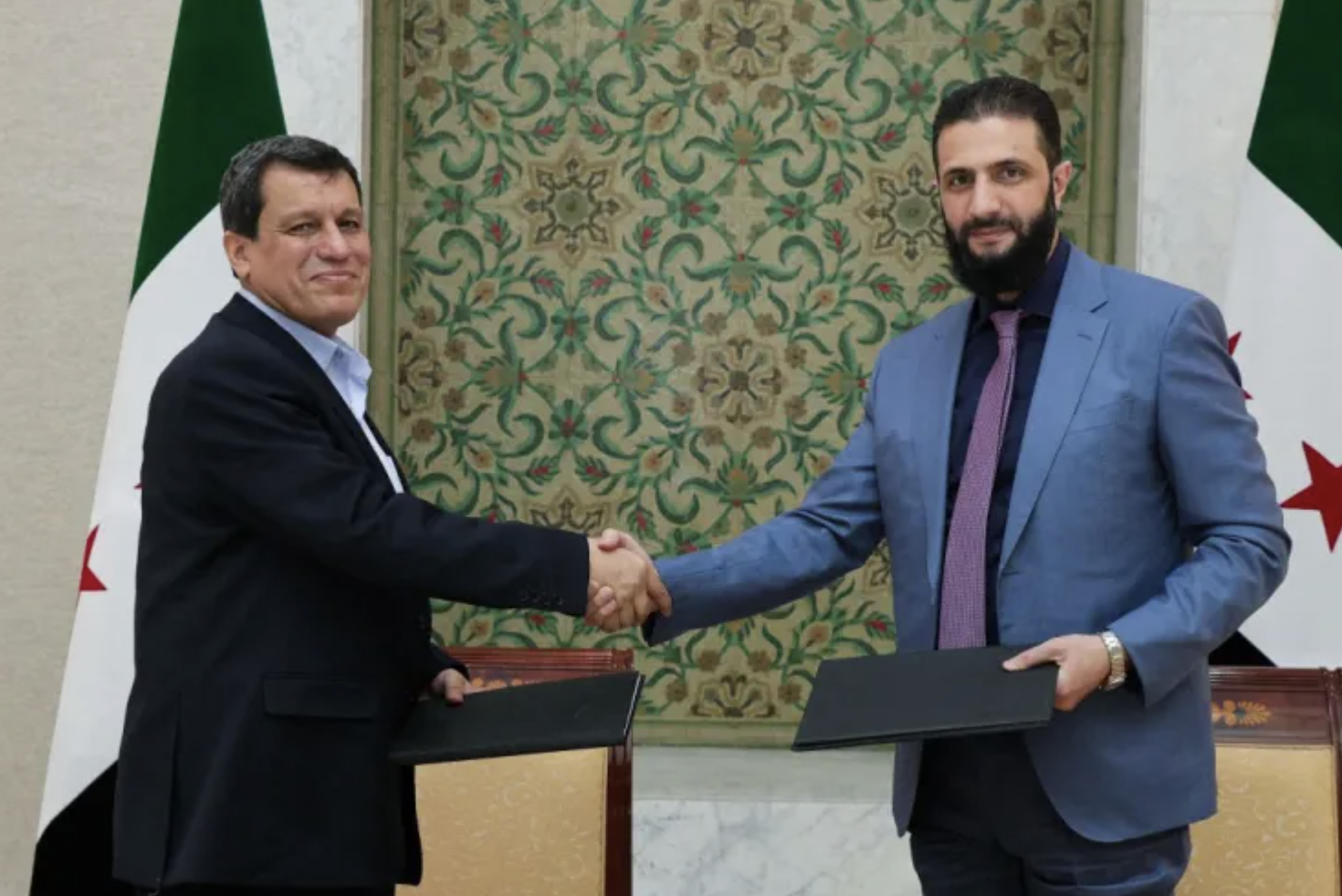
Negotiating Privileges
Ammar Jallou argues that the postponement of the Paris meeting between the SDF and Damascus was the result of Turkish pressure on the Syrian government. Ankara, he said, fears a French position supportive of the SDF, tied to French Turkish rivalry in Syria.
Turkiye is pressing the SDF to integrate into the Syrian state and to close the file on weapons depots in civilian areas as well as the tunnel network stretching along the Turkish Syrian border.
Turkish Foreign Minister Hakan Fidan said at a joint press conference with his Syrian counterpart, Asaad al-Shaibani, in Ankara on August 13, 2025, that SDF fighters must stop stalling and commit to the integration agreement with the Syrian government.
According to observers, Sweida views the SDF as one of the actors supporting its project in southern Syria.
Pro-government Turkish journalist Abdulkadir Selvi said U.S. Ambassador to Ankara and Special Envoy for Syria Thomas Barrack shifted his tone on U.S. policy toward Syria.
Selvi said the change followed Barrack’s meeting with Mazloum Abdi. In his article published on Hurriyet on August 28, 2025, he added that the ambassador’s stance had unsettled officials in Ankara.
“Israel is demanding privileges for Druze under its sway in Syria and is pressing for this through the U.S. administration.”
“Israel has influence within the SDF and the latter is pressing the point by saying that what Israel seeks for the Druze, it also wants for itself,” Selvi wrote.
“This is the current situation regarding the Druze and the SDF in Syria.”
Israeli Prime Minister Benjamin Netanyahu said during a meeting with Israeli Druze leader Muwaffaq Tarif and several Druze figures, in a video released by his office on August 28, 2025, that discussions are underway to establish a demilitarized zone in southern Syria and to create a humanitarian corridor to deliver aid to Sweida.
“We are focusing on three things: Protecting the Druze community in the Sweida governorate, but not only there; creating a demilitarised zone stretching from the Golan Heights [passing] south of Damascus down to and including Sweida; and establishing a humanitarian corridor to allow the delivery of aid,” Netanyahu said.
Notably, the United States continues to urge the SDF to integrate with the new Syria. In an interview with Kurdistan 24 in July 2025, Ambassador Barrack said that while he recognized the SDF’s role in the fight against the Islamic State, it must accept the reality that its only future path lies with Damascus.
90% of Syria’s oil and gas resources are concentrated in SDF-held areas, particularly in al-Hasakah and Deir ez-Zor provinces. Those resources could play a key role in the return of about one million refugees and displaced people.
Sources
- Israel says in talks ‘right now’ on south Syria demilitarization
- U.S. Holds Talks with Mazloum Abdi in Jordan to Push March 10 Agreement Forward [Arabic]
- In Amman Meeting, SDF Discussed Integration with U.S. Delegation Under ‘Decentralized’ Framework [Arabic]
- Israel Seeks Privileges for Druze Under Its Control in Syria, Pushing Through U.S. Administration [Turkish]
- Jordan Welcomes SDF Integration into Syrian State Institutions [Arabic]


